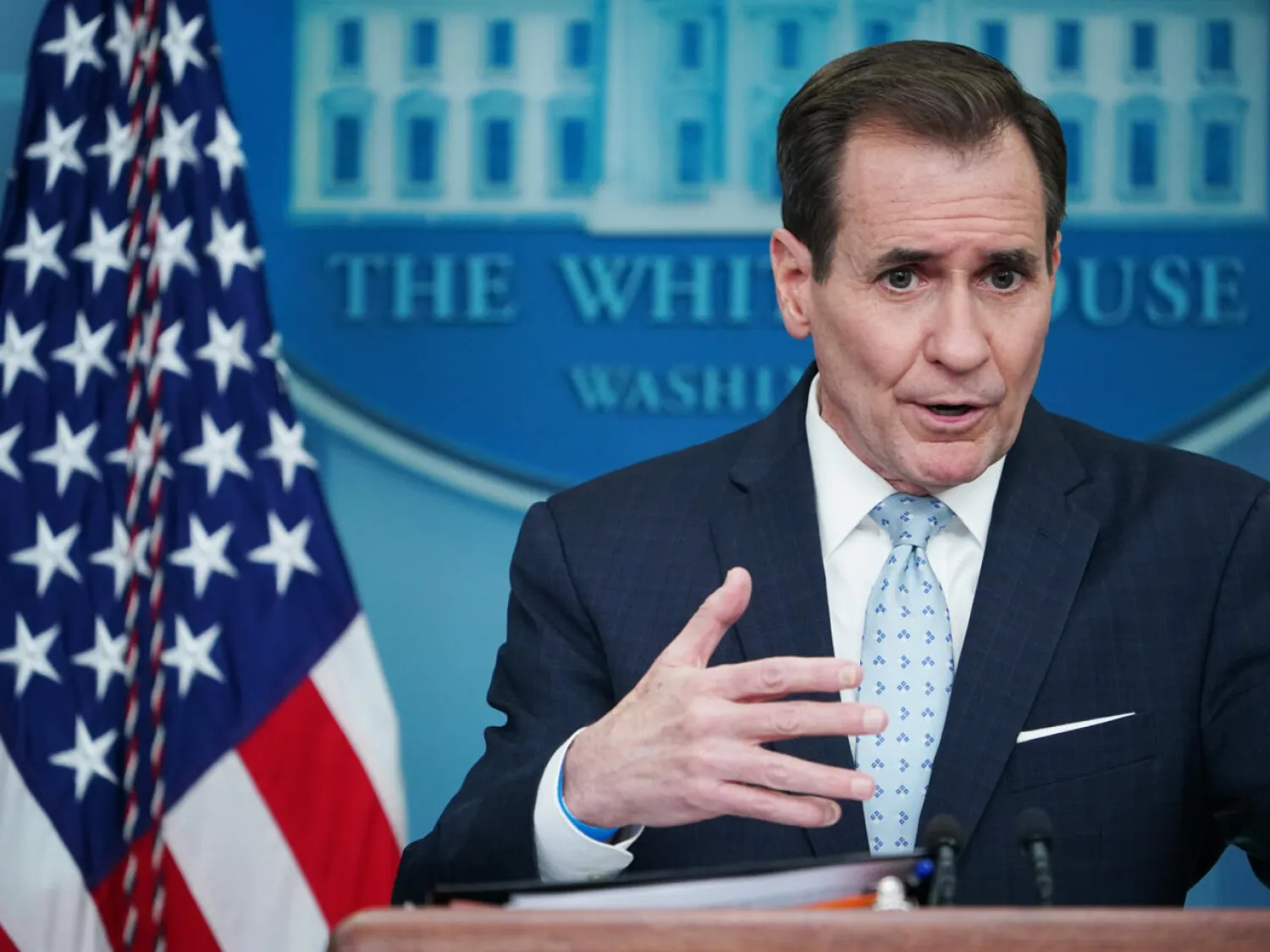The White House responded Monday to growing and at times fevered speculation over the shooting down of unidentified aerial objects by saying the targets could be anything from commercial craft to espionage devices, while denying that US balloons spy on China.
After mounting pressure on President Joe Biden's administration to explain the unprecedented situation that has seen an alleged Chinese spy balloon and three mystery objects shot down in North America in just over a week, officials appeared sure of only one thing: It's not aliens, AFP said.
"I just wanted to make sure we address this from the White House," Biden's press secretary, Karine Jean-Pierre said at the top of the first full-blown briefing since the latest shoot-down of an unidentified object Sunday.
"There have been questions and concerns about this but there is no -- again, no -- indication of aliens or extraterrestrial activity."
What actually is going on, however, remains unclear.
According to the US government, the first of the four objects -- a sophisticated, high-altitude balloon shot down on February 4 off the coast of South Carolina -- was part of an ongoing, global "fleet" of Chinese espionage balloons.
China denied this, calling the huge balloon an errant weather research craft, and lashed out at Washington on Monday. Beijing said more than 10 US balloons entered Chinese airspace "without any approval" over the last year.
As for another high-altitude balloon spotted in Latin America, China says that was a civilian flight test device.
White House National Security Council spokesman John Kirby told reporters the US is "not flying surveillance balloons over China."
"I'm not aware of any other craft that we're flying over into Chinese airspace," he said.
- Uncertain origins, objectives -
The United States says the large Chinese balloon down on February 4 was obviously a spy craft and that the debris is currently being plucked from the Atlantic Ocean for analysis.
Crews have recovered important sensor and electronics parts from the balloon, as well as large parts of the structure, the US military said Monday.
The other three unidentified objects -- shot down Friday over Alaska, Saturday over the Yukon in Canada, and Sunday over Lake Huron on the US-Canadian border -- were much smaller, less sophisticated, and were flying lower than the Chinese balloon from earlier this month.
US officials know little about them -- not even to whom they belonged.
"Countries, companies, research and academic organizations operate objects at these altitudes for purposes that are not nefarious at all, including scientific research," Kirby said.
Whether they were spying also remains unknown.
"Even if we have no indications that any of these three objects were surveilling, we couldn't rule that out," he said.
Officials also say that the perceived increase in incidents could be due to an adjustment in radar settings after February 4, which means items once passing unseen are now caught.
"One of the reasons that we think we're seeing more is because we're looking for more," Kirby said.
The truth will not be clear until debris is collected and that is not simple, either.
In the case of the large Chinese balloon, sea conditions made diving impossible Monday, Kirby said, while the three subsequent craft were brought down in "pretty remote, difficult areas to reach."
Canadian Public Safety Minister Marco Mendicino called the location of the debris of the unidentified object shot down over the Yukon on Saturday "extremely challenging and difficult to access."
- China tensions -
In Washington, the extraordinary events are fueling already intense suspicion about China across both the Democratic and Republican parties -- a trend likely to grow as the 2024 presidential election approaches.
The diplomatic fallout has already been substantial, with Secretary of State Antony Blinken abruptly canceling a rare visit to Beijing.
China's accusations of US spying prompted National Security Council spokeswoman Adrienne Watson to allege that Beijing has a high-altitude spying program that has violated the airspace of "40 countries across five continents."
The State Department said China was "scrambling to do damage control" and that the communist government "has failed to offer any credible explanations for its intrusion into our airspace."
But over the weekend, Chinese state-affiliated media reported that an unidentified flying object had been spotted off the country's east coast and that the military was preparing to shoot it down.
Beijing on Monday declined to comment on that report, referring journalists to the defense ministry, which did not respond to requests for comment from AFP.









